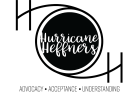Wins And Losses
Everything that we do from the time we become school aged is based on some measure of success. As soon as we can fill in a dot on paper, we’re handed a pencil and we’re tested into oblivion.
These tests are apparently a measure of how successful we can be in the future, based on how well we can recall the things we’ve been taught to that point.
Reading and comprehension.
Math.
When the friggin’ Louisiana Purchase was made.
No matter what the test, we’ve been culturally conditioned to use our ability to pass tests as a marker for success.
Tests are used to gauge us against our peers, put us into demographics, and predict our future. They can get us into colleges and land us jobs. They tell us where our wins are.
They can also be used to tell us what we’re not doing. What we’re not capable of. Where we’re not successful.
For families that have a child on the autism spectrum, tests – and successes – often look much, much different than a lot of people are used to.
They’re often camouflaged by the use of words like “evaluations” and “assessments” – but really they mean, for our kids, successes and failures.
Tests for us are almost always focused on what our kids can’t do. What they fail to achieve. How behind they are.
Tests for us focus on our kids’ losses.
And we’re beaten over the head by them.
Every 6 months, we sit down and we go through a Vineland Assessment – to prove to our insurance provider that, yes, our child still needs services.
In this assessment, we either agree, disagree, or mention the frequency at which our child performs certain, often basic, tasks.
It’s basically a laundry list of tests that your child fails, twice a year. It’s geared to measure failure as a means of validating your child’s level of disability.
And it’s brutal.
There are the constant development tests at the pediatrician.
“Okay so we’re not doing that yet.”
Yep. Got it. He’s behind.
Speech therapists have to report how your child is drastically behind where they should be in receiving and projecting language.
“His receptive language is at roughly 1.5 years old, and his expressive is at about 3.”
Well, he’s seven. Again. Got it.
Let me just sink a little lower in my seat so you can’t see me take a drink of wine from my purse bag.
It sure would be nice if the assessment process your child was subjected to took on its own language flip.
It would be nice – even if they did continue to measure deficits – if they took a language that only spoke in terms of success.
“He’s aged in receptive by a half a year!”
“I see he’s helping you tie his shoes, that’s a big step forward!”
It would be so much more fulfilling – and so much less anxiety inducing – to go through these processes in a way that gauges success the way we do as parents.
To see our kids as the huge success stories that we know they are.
We don’t get to set goals and milestones the way many people do. We celebrate them very much in the same manner – but we get looked at like we’re crazy for the things we celebrate.
It’s the same level of excitement for us, just a different unit of measurement.
I know it’s awesome that your kid made the super tough soccer team, and I’m super excited for you. Really, I am.
But I’m a little more excited right now that my son is sitting on the bleachers watching, and not trying to get sensory input by smacking his head against them.
He’s working just as hard as your kid is, we’re just seeing different wins.
That’s where the understanding we need comes in – beyond the awareness.
Different task loads.
Same success.
💙

